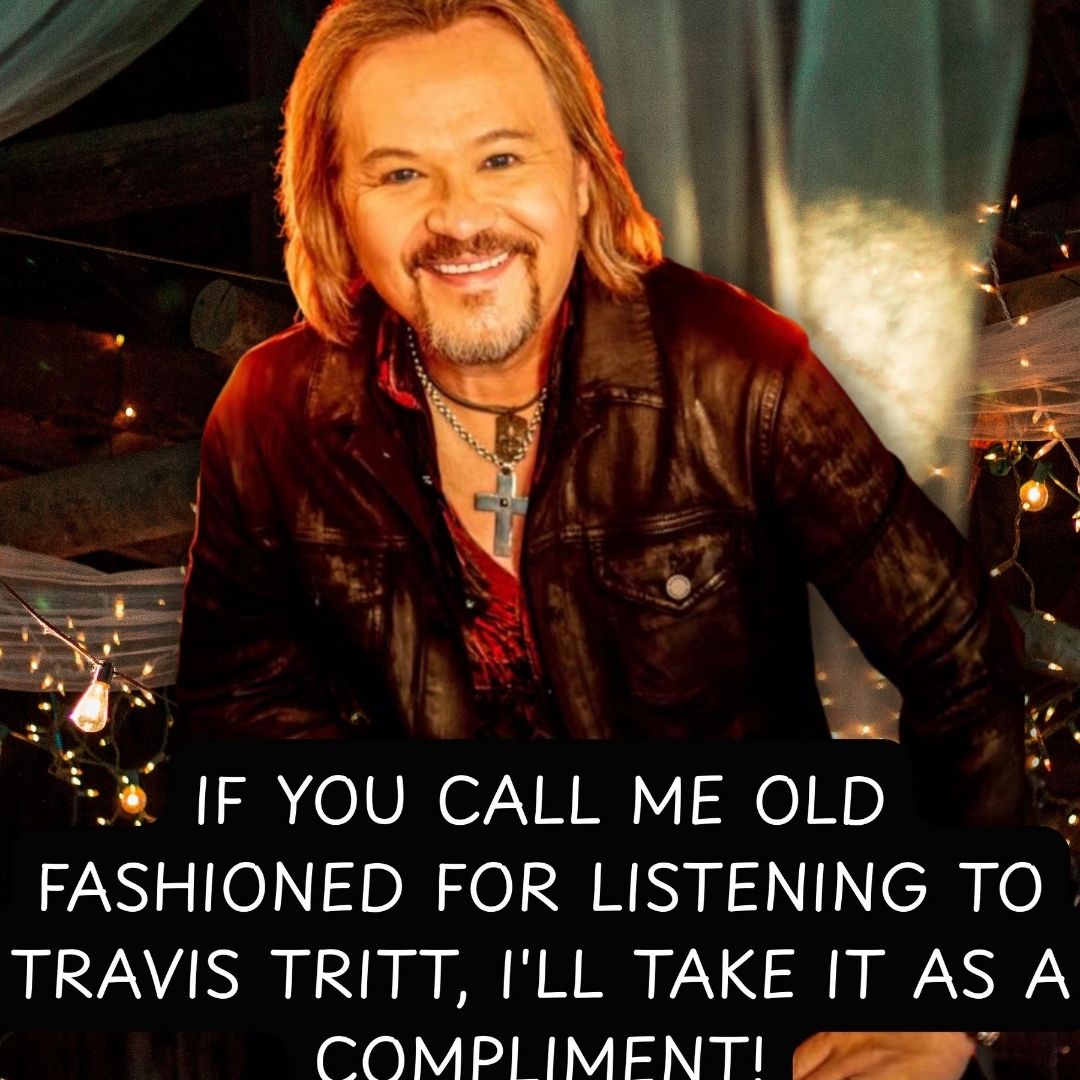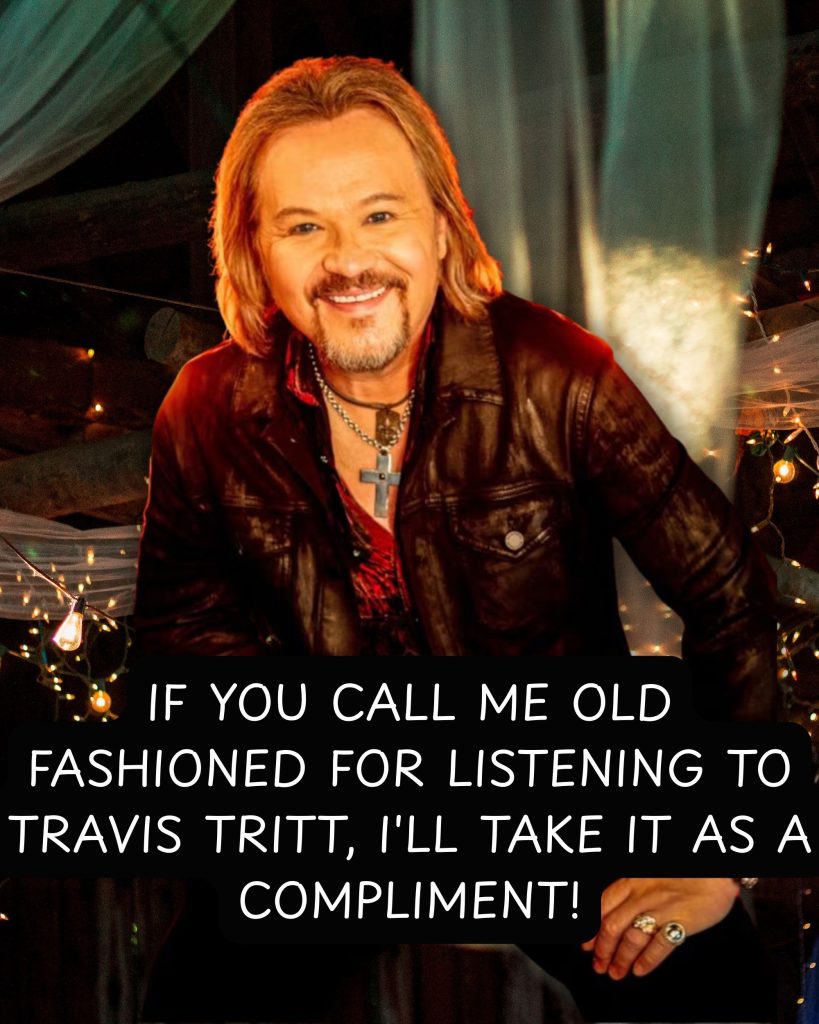Introduction
Growing up in the ‘90s, I remember the crackle of my dad’s truck radio spitting out Travis Tritt’s T-R-O-U-B-L-E on long summer drives through dusty backroads. That album felt like a rebel yell—raw, unpolished, and full of stories that stuck with you like burrs on a flannel shirt. It wasn’t just music; it was a snapshot of a time when country was shaking off its rhinestones and getting gritty again. Let’s dive into why this album still kicks up dust today.
About The Album
- Title: T-R-O-U-B-L-E
- Artist: Travis Tritt
- Release Date: 1992
- Album: Third studio album, released on Warner Bros. Records
- Genre: Country (with elements of honky-tonk, Southern rock, and blues)
Background
Released in 1992, T-R-O-U-B-L-E was Travis Tritt’s third swing at the plate, following his debut that had already marked him as a firebrand in the new wave of country artists. The early ‘90s were a battleground for country music—pop-leaning crooners like Garth Brooks were dominating, but Tritt leaned into a grittier, outlaw-inspired sound, channeling Waylon Jennings and Lynyrd Skynyrd. According to the album’s Wikipedia page, T-R-O-U-B-L-E spawned five singles: “Lord Have Mercy on the Working Man,” “Can I Trust You with My Heart,” the title track, “Looking Out for Number One,” and “Worth Every Mile,” which hit various spots on the Billboard Hot Country Songs chart, with “Can I Trust You” peaking at #1. The album itself went double platinum, selling over two million copies in the U.S., a testament to its grip on fans hungry for authenticity.
The title track, a cover of Elvis Presley’s 1975 hit written by Jerry Chesnut, was a bold choice, reworking a rockabilly swagger into Tritt’s rough-hewn style. Another cover, “Leave My Girl Alone,” originally by bluesman Buddy Guy and later Stevie Ray Vaughan, showed Tritt’s knack for blending genres. The album’s lead single, “Lord Have Mercy on the Working Man,” penned by Kostas, brought in heavy-hitters like Brooks & Dunn, George Jones, and Tanya Tucker for backing vocals on its final chorus, giving it a communal, almost revival-like feel. Critics praised Tritt’s versatility, though some noted the covers didn’t outshine the originals. Still, T-R-O-U-B-L-E cemented Tritt as a mainstay, proving he could balance radio-friendly hooks with a rebel’s edge.
Musical Style
T-R-O-U-B-L-E is a sonic quilt of country’s roots and rock’s attitude. Its ten tracks bounce between honky-tonk shuffles, Southern rock riffs, and bluesy laments. The instrumentation—helmed by producers Gregg Brown and Stewart Harris—leans on twangy Telecasters, thumping basslines, and the occasional wail of a steel guitar. Richard Bennett’s acoustic and slide guitar work, especially on “A Hundred Years from Now,” adds a rustic bite, while Billy Livsey’s Wurlitzer and Hammond organ inject soul into tracks like the title song. Sam Bacco’s percussion, from tambourines to congas, gives the album a loose, barroom vibe.
The structure of the album feels like a live set, kicking off with the rowdy “Looking Out for Number One” and closing with the introspective “Bible Belt,” a duet with Little Feat that later appeared in the film My Cousin Vinny. Tritt’s voice—gravelly yet tender—carries the weight, whether he’s belting defiance or crooning heartbreak. The title track’s upbeat tempo and spelled-out chorus (“T-R-O-U-B-L-E!”) make it a foot-stomper, while “Can I Trust You with My Heart” slows things down with a classic country ballad’s ache. These contrasts give the album its staying power—it’s as much for the jukebox as it is for late-night drives.
Lyrics/Themes
The lyrics on T-R-O-U-B-L-E are stories of hard living, love gone sideways, and working-class grit. “Lord Have Mercy on the Working Man” is a blue-collar anthem, railing against economic squeeze with lines like “Why’s the rich man busy dancin’ while the poor man pays the band?” Its chorus, stacked with country legends, feels like a rally cry. The title track, meanwhile, spins a lighter tale—a musician spotting trouble (a woman) walking into his gig, with the spelled-out hook adding playful menace. “Can I Trust You with My Heart” dives into vulnerability, its simple plea cutting through the album’s tougher moments.
These songs don’t just tell stories; they paint characters—truckers, dreamers, cheaters—who feel ripped from a honky-tonk’s neon glow. Tritt’s delivery ties the themes to the music, his growl giving the uptempo tracks swagger and his softer tones making the ballads sting. The covers nod to rockabilly and blues, but Tritt’s originals ground the album in country’s storytelling heart.
Performance History
T-R-O-U-B-L-E was a commercial juggernaut, with its singles lighting up country radio and the album hitting #27 on the Billboard 200. The title track became a staple of Tritt’s live shows, its infectious energy igniting crowds. “Can I Trust You with My Heart” was a chart-topper, and its emotional heft made it a fan favorite at concerts, often sung back to Tritt by packed venues. The album’s tracks, especially “Lord Have Mercy,” found airplay on country stations for years, and Tritt toured relentlessly, sharing stages with legends like George Jones, whose cameo on the album boosted its cred.
Over time, the album’s reputation grew as a high-water mark of ‘90s country, though some critics argued Tritt leaned too hard on covers. Still, its chart success and double-platinum status spoke louder, and tracks like “T-R-O-U-B-L-E” remain crowd-pleasers at Tritt’s gigs, where he still channels that long-haired, leather-jacketed energy.
Cultural Impact
T-R-O-U-B-L-E hit when country music was exploding, thanks to artists like Tritt, Alan Jackson, and Clint Black, who pushed back against Nashville’s slicker tendencies. The album’s blend of rock, blues, and country helped pave the way for cross-genre acts like Kid Rock and later Eric Church. “Bible Belt” landing in My Cousin Vinny gave it pop-culture legs, tying Tritt’s sound to a hit film’s underdog vibe. The title track, with its Elvis roots, became a karaoke standard and a touchstone for fans of both Presley and Tritt.
Beyond music, the album captured the ‘90s working-class ethos—think flannel shirts, pickup trucks, and small-town pride. “Lord Have Mercy” resonated with listeners feeling the pinch of recession, its message echoing in country’s ongoing love for everyman anthems. Tritt’s defiance of Nashville’s polish made him a symbol of authenticity, influencing how country marketed “realness” in the decades that followed.
Legacy
More than three decades on, T-R-O-U-B-L-E still feels like a cold beer on a hot night—refreshing, unpretentious, and just what you need. It’s a bridge between country’s outlaw past and its modern grit, showing Tritt at his peak: a storyteller with a chip on his shoulder and a heart on his sleeve. The album’s singles still pop up on classic country playlists, and its influence lingers in artists who mix rootsy sounds with rock’s edge. For fans, it’s a time capsule of ‘90s rebellion; for newcomers, it’s a masterclass in how to make country feel alive.
Conclusion
Listening to T-R-O-U-B-L-E now, I’m struck by how it balances swagger and soul, like a bar fight that ends in a hug. It’s Travis Tritt at his rawest, pouring everything into songs that still hit hard. I’d urge you to spin the album on vinyl if you can—the crackle suits it—or check out Tritt’s live performances from the ‘90s on YouTube, where he tears into “T-R-O-U-B-L-E” like it’s the last song he’ll ever sing. Better yet, throw it on next time you’re cruising a backroad. You’ll get why it stuck with me all these years. What’s your favorite track? Let it take you somewhere.
Video
Lyrics
Well, I play an old guitar from nine ’til half past one
I’m just tryna make a livin’ watching everybody else havin’ fun
Well, I don’t miss much if it happens on a dancehall floor
Mercy, look what just walked through that door
Well, hello T-R-O-U-B-L-E
Tell me what in the world
You doin’ A-L-O-N-E
Yeah, say “hey”, good L-double-O-K-I-N-G
Well, I smell T-R-O-U-B-L-E
I was a little bitty baby when my papa hit the skids
Mama had a time tryin’ to raise nine kids
She told me not to stare ’cause it was impolite
She did the best she could, to try to raise me right
But mama never told me ’bout nothin’ like Y-O-U
Bet your mama must’ve been another good lookin’ honey too
Hey, good L-double-O-K-I-N-G
Well, I smell T-R-O-U-B-L-E
Well, a sweet talkin’, sexy walkin’, honky-tonkin’, baby
The men are gonna love you, and the woman gonna hate you
Remindin’ them of everything they’re never gonna be
Maybe the beginning of a world war three
‘Cause the world ain’t ready for nothing like Y-O-U
I bet your mama must’ve been another good lookin’ mama too
Hey, say “hey”, good L-double-O-K-I-N-G
Well, I smell T-R-O-U-B-L-E
I said hey
I said hey
I said hey
I said hey
I said hey, yeah
I smell T-R-O-U-B-L-E

